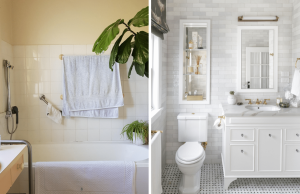
Quality and well-maintained heating units help optimize comfort at home or office, especially during winter. With various options for specific scenarios, homeowners can choose heating solutions that best fit their needs and living spaces. It’s essential to consider the best option based on your home’s size, climate, and fuel availability. Understanding each system’s unique features and advantages can help you achieve optimal warmth and energy efficiency in your home.
1. Central Heating
Centralized systems offer numerous heating advantages for homeowners. You may place such a system in basements or utility rooms and distribute warm air through a network of ducts, ensuring even heat distribution throughout the home. That’s especially beneficial in huge spaces, where individual room heaters may struggle to maintain preferred temperatures.
Central heating is generally more efficient, reducing bills by heating the entire home with a single unit. They provide steady warmth while eliminating cold spots and drafts. Also, their less intrusive design enhances the home’s aesthetics.
Also, it simplifies maintenance, as servicing a central system is often easier than managing multiple individual heaters. Despite the higher onboarding investment, the long-term comfort, efficiency, and convenience benefits make central heating a worthwhile choice. However, consulting a Furnace Repair Calgary expert is crucial in ensuring quality service for your HVAC system.
2. Zoned Heating
A zoned heating system is ideal for homes with varying heating needs or layouts. This innovative approach allows homeowners to control the temperature in different areas individually, making it especially beneficial for families with diverse comfort preferences. Zoned systems optimize energy efficiency and lower heating bills by customizing heating in frequently used rooms and reducing it in unoccupied spaces.
One of the primary advantages of zoned heating is its ability to provide comfort tailored to each room’s occupants. That means that everyone can enjoy their preferred temperature without the need to heat the entire house. Additionally, zoned systems offer flexibility, effortlessly adapting to seasonal changes or specific needs.
For larger homes, homes with unique architectural features, or those where different areas experience varying temperatures, investing in a zoned heating system can significantly enhance overall comfort and create a more energy-efficient living environment. However, expertise in zoning is crucial in assessing your home’s layout, recommending the right zoning strategy, and ensuring proper installation.
3. High Efficiency Furnaces
Modern furnaces with excellent efficiency ratings represent a significant advancement in home heating technology. These systems take a design that minimizes energy consumption while maximizing heat output, making them environmentally friendly and cost-effective. With a proven rating of over 90%, these furnaces convert most of the fuel into usable heat, thus reducing energy bills and global warming impact.
These high-performing models employ innovative technologies such as condensing technology, which recycles waste heat that would otherwise go to waste, and improved combustion systems that ensure complete fuel burning.
Also, advanced controls can optimize energy usage, help maintain reliable heating throughout your home, and increase your home’s market value. Although they may have a higher acquisition price, the long-term savings, environmental benefits, and comfort improvements make high-efficiency models a wise choice for homeowners.
4. Non-Split Surfaces for Single and Connected Spaces
Non-split, single-piece, or integrated furnaces are compact furnace designs that combine the heat exchanger, blower and controls into one system. This design offers several advantages, particularly in spaces with limited installation options. Non-split furnaces are typically more efficient due to their streamlined construction, which reduces energy loss during heat distribution.
They are easier to install, requiring less ductwork and fewer connections, making them ideal for small homes or specific heating needs. Also, their compact size allows for flexibility in placement, whether in a basement, utility room, or even a closet. Homeowners can enjoy reliable heating with a smaller footprint by opting for a non-split heating option.
5. Mobile Home Furnaces
Furnaces for transportable homes meet the distinct heating requirements of mobile and manufactured homes. These units are compact and space-efficient, designed to fit into limited areas without compromising performance. Many mobile home furnaces boast high efficiency, often featuring higher Annual Fuel Utilization Efficiency ratings to minimize energy costs.
Also, they can operate on various fuel sources, including propane, natural gas, or electricity, offering flexibility depending on regional availability. However, it’s crucial to consult an HVAC expert to help you identify modern home furnaces with essential safety features, such as automatic shutoff systems. Investing in a reliable unit ensures comfort during colder months and requires regular maintenance and professional installation to optimize performance and longevity.
In conclusion, making the perfect choice for your HVAC needs is essential, whether considering your budget or home parameters. However, hiring an experienced furnace expert in Calgary is vital to ensure you invest wisely in quality equipment and skilled installation. That guarantees optimal performance, safety, and value for your money, ultimately saving you time and enhancing your home’s comfort.








